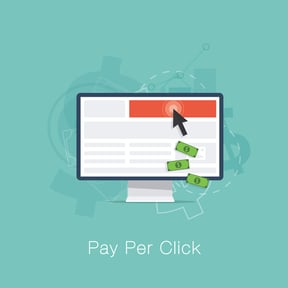 When creating a Google Ad, you’ll need to research demographics and personas and carefully choose the right keywords for your business and target audience. Then, you’ll need to match appropriate landing pages to your campaign. However, once this research and preparation period is finished, you’ll need to actually write your ad.
When creating a Google Ad, you’ll need to research demographics and personas and carefully choose the right keywords for your business and target audience. Then, you’ll need to match appropriate landing pages to your campaign. However, once this research and preparation period is finished, you’ll need to actually write your ad.
Although writing the copy for your ad might seem like the easy part, nothing could be further from the truth. You’ll need a memorable ad that invites customers to click. A poorly written ad that does not incorporate best practices can come off as spam or simply unappealing.
Writing Google Ads is a nuanced art. Even if your copywriting skills fall well below the titans of your industry, you too can make ads that get click-throughs and results.
Continue reading as we cover several tips to help you write more effective ad copy for your next paid search campaign.
Keep Your Ad Relevant
Using a well-structured paid search account (Account > Campaign > AdGroup > Keyword), writing relevant ad copy is one of the easiest tasks to accomplish. Keep in mind the set of keywords that you are bidding on and try to incorporate high volume keywords in your ad copy. Try to accommodate the different semantic methods people use for search.
As an example, if you’re running a campaign for Urgent Care centers and aren't actively using DKI, you may want to segment Urgent Care Center and Walk-In Center into separate AdGroups. Fundamentally, these terms are the same thing; however, speaking directly to the individual will increase your chance of receiving the click and defeating the competition.
Fulfill Customer Needs
At any given moment, you are competing for one click with 15+ other organizations (Paid, Location, Organic). Presenting solutions to your customer's most pressing problems is critical to gain a competitive edge over other organizations and to win each individual click. Concisely (for speed and character limitations) convey your story to make sure the customer knows that they will find their answer immediately after clicking your ad.
Be Direct With Calls to Action
Let searchers know that when they click your ad, they are taking the next step to completing an action. Typically, this can include a special offer or sale that is being run, or simply a broad action that you need them to take (i.e. “sign up” or “download now” or “apply online today”). This direct approach will limit the chance for miscommunication and advertiser intent. Be straightforward with your potential customers and conversion rates will increase.
Keep it simple. Speak to your customers’ goals. Create a sense of urgency.
Use Ad Extensions
This feature is a commonly overlooked, but extremely easy, method to gain more SERP visibility and increase your ad’s click-through rate. Use ad extensions to convey more information about your organization, product or service, contact information, diversity and competitive edge. With limited character limits, ad extensions are a fantastic way to tell more of your story.
Use "Dynamic Keyword Insertion (DKI)"
Use Dynamic Keyword Insertion (or DKI) to improve the relevancy of your ad copy by inserting the search query into a specified area within your ad (i.e. Headline, Description or Display URL). If used correctly, this advanced technique can drastically improve CTR.
Test Ad Copy Components
Be sure to test your ad copy and consistently run variations against each other. Be sure to maintain standard A/B testing best practices and only test one element of the ad at a time (i.e. the CTA in your headline #2). Testing will ensure that your ads are always fresh and properly optimized to improve the user experience, CTR, and, ultimately, conversions.
Use Keywords to Determine User Intent
Mirror the customer's end goal instead of reiterating why they searched in the first place. There are times, for example, where leading ad copy off with a question might make sense. However, typically you are wasting precious characters on reiteration of the user intent rather than solving their issue.
Example:
SQ – KIA dealership near me
- Wasted Headline– Looking for a KIA dealer?
- Ok Headline– Local KIA Dealer
- Better Headline– KIA Dealer Manchester CT
Use Time Sensitive Copy When Possible
Show the user that they are not looking at spam or an outdated ad by including some sort of time or recent event in your ad copy. For example, if your organization is running a 20% off sale for the month of August, do not simply write “20% off Sale.” Instead, write “20% off Sale during August” or “August 20% off Sale”.
Be Specific
Similar to using time related ad copy, specificity will increase the validity of your ad and work toward tip #8 while potentially adding a sense of urgency. If you are writing an ad for a special offer that may be limited to just 100 signups, use it. State “First 100 Signups” or dynamically insert based on your database “Just 84 signups left” or “16 people signed up today.” This shows the searcher that your ad is in real time and reminds the user that he or she needs to act fast in order to get the deal that they are looking for.
Get Personal
The title of this tip explains it all. Everyone appreciates the effort of being spoken to directly rather than talking at a group. Use words like “you” and “your” in order to appeal directly to an individual (i.e. “Your Step is the Simplest” vs. “The First Step is the Simplest”).
Don’t miss out on the most comprehensive Paid Search Audit in the industry.
Find out what you are doing wrong, where the missed opportunities are, and most importantly, if your paid search programs are working for you so that you can lower cost and increase your conversion rates. The SEM team at ImageWorks will examine important key metrics and let you know what our highest priorities would be to get your campaigns in the best of health. If you don’t have the necessary resources, we offer flexible management solutions and pricing models to meet your needs.
Call 860-454-0582 and ask for sales to schedule your free audit today.

